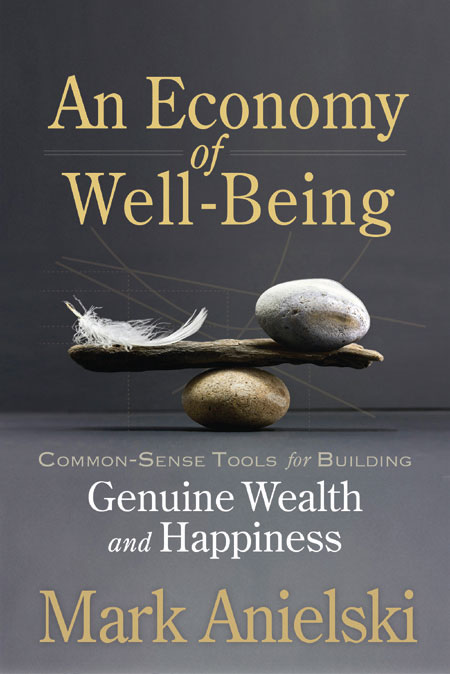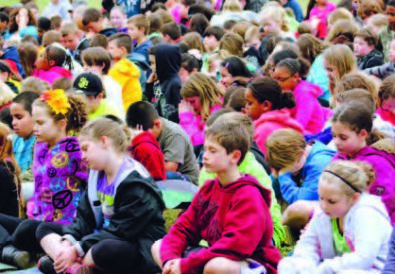There is a long-standing debate about whether money buys happiness. Some argue that money cannot buy happiness. Some researchers have found that there may be a threshold of income and self-rated happiness, somewhere around $70,000 per household.
Others would disagree, arguing that incremental increases in income secure marginally more happiness. I’m not sure there will ever be an objective way of measuring the sufficiency of income or money relative to life needs. More often than not, most of us live life wanting more stuff and thus more money. This may vary over time and diminish as we age. For some, there can never be enough money.
If there is no objective measure of an optimum level of money and well-being, perhaps we need to rely on perceptions instead. In the well-being surveys I’ve conducted, I ask people how they feel about the sufficiency of income or money and life satisfaction. The question is, do you feel your current level of income is sufficient to meet your life needs? I have found that only about 30%–35% of a population feel their income is insufficient to meet their needs. It turns out that this is often identical to my estimates of the percentage of the population who is not earning a living wage—enough income to participate fully in an economy or society.
Recent studies of happiness and money suggest that more money increases your well-being only if you spend it on the right things. Research by Harvard Business School has found that spending more money on buying more free time by hiring a cook or house cleaner increases a person’s perceived well-being, while spending more money on material possessions does little to improve happiness. The researchers (including Dr. Ashley Whillans at Harvard Business School and Elizabeth Dunn from the University of British Columbia) surveyed more than 6,000 adults in the United States, Denmark, Canada and the Netherlands. They found that “people who hire a housecleaner or pay the kid next door to mow the lawn might feel like they’re being lazy. But our results suggest that buying time has similar benefits for happiness as having more money.”
In my own life I have experienced the benefits of having more free time to pursue things I enjoy, including writing books or spending time mentoring a young business person or social entrepreneur. Too often we lament not having enough time to pursue the things that might make us happier.
One of the most important contributors to my own well-being and happiness has been my relationship with money. Money may be only a social invention that we have created out of our imagination to serve as a tool for exchange of goods and time in our economy, but it has one of the most mysterious and profound influences on our lives. We cannot live without money. We say “we make money,” when in fact banks create money as the life-blood for our lives.
We exchange our time through work for money so we can buy the things in life that we hope will make us happy. We never seem to have enough money, or rather never feel we have enough money. We know in our hearts that money will not buy us happiness, yet we buy lottery tickets hoping to get rich quick. On our deathbeds we are unlikely to use our last breath telling those we love how much money we made.
One of the most important books I have ever read is Your Money or Your Life by Vicki Robbins and Joe Dominguez (1999). It profoundly changed my understanding of time and money. I realized that each moment in our lives is a choice of how we will spend the most precious of all things, time. We choose how we spend the roughly 740,000 hours we have to live from birth to death (with an average life expectancy of 84+ years). We spend a good portion of that time sleeping and a large portion of our waking hours working for money.
Each day we give up some of our time for money. Some argue that most of us are not “making a living” but “making a dying.” Certainly those of us who are mortgaged would agree. For most of us there seems to be no choice between money and our lives.
Making money and stressing about our debts and how we will pay the bills dominates our waking hours; life is what we fit into the few remaining hours in the day. In my own experience as a small business owner and economic consultant, I have learned the precious value of discretionary time. I’ve had to learn how to balance the need to make sufficient income from my economic consultancy with the discretionary time I chose to spend with family, friends, in nature and mentoring others. I experienced the joy of having extra time once all of our financial debts (mortgages, car loans, credit card balances) were paid in full.
When my wife and I had paid off our mortgage and found ourselves with more discretionary income, we had the choice of either working less for money or spending our new discretionary income on a bigger house or more material things. We opted to enjoy our first and only home, maintain our current possessions, live relatively frugally and enjoy more discretionary lifetime energy on our children and with family and neighbors. In many ways I experienced the same positive well-being impacts (i.e., more free time) as those in the Harvard study. We paid ourselves in terms of more discretionary time.
I’ve learned that there is great freedom and joy in living unencumbered by financial debts. Spending less of our earned income on interest payments means we have more time to dedicate to the things that bring life joy and greater personal and family well-being. I envision a world where we all may experience the joy of more free time, less debt, and thus greater well-being.
Excerpted from An Economy of Well-Being ©2018, by Mark Anielski, with permission of New Society Publishers.
 Mark Anielski is President and Chief Well-Being Officer at Anielski Management Inc. He has served as an economic advisor to China and Bhutan in their efforts to adopt new measures of well-being and happiness. He is also the author of the award-winning The Economics of Happiness.
Mark Anielski is President and Chief Well-Being Officer at Anielski Management Inc. He has served as an economic advisor to China and Bhutan in their efforts to adopt new measures of well-being and happiness. He is also the author of the award-winning The Economics of Happiness.

















